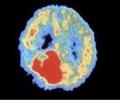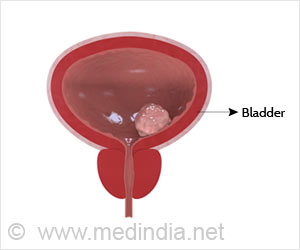Researchers at the Salk Institute for Biological Studies have revealed that cancer cells will become resistant to the lethal effects of certain types of chemotherapy
Researchers at the Salk Institute for Biological Studies have revealed that cancer cells will become resistant to the lethal effects of certain types of chemotherapy if molecular tripwires for damaged cells are left in place for too long. These tripwires are designed to force damaged cells to pause and take stock.
Their findings, published in the Aug. 28 issue of Molecular Cell, help explain how the checkpoint exit is delayed in some cancer cells, helping them to recover and resume dividing after treatment with DNA-damaging cancer drugs."A lot of progress has been made in understanding the molecular details of checkpoint activation," says senior author Tony Hunter, Ph.D., a professor in the Molecular and Cell Biology Laboratory, "but checkpoint termination, which is essential for the resumption of cell cycle progression, is less well understood."
The Salk researchers say that a better understanding of this crucial process may allow them to develop biological markers that predict clinical resistance to chemotherapy and to design cancer drugs with fewer side effects by exploiting the molecular mechanism underlying the checkpoint exit.
"If we could screen tumors for markers of chemo-resistance, we could then adjust the treatment accordingly," hopes first author You-Wei Zhang, Ph.D., formerly a postdoctoral researcher in Hunter's lab and now an assistant professor at Case Western Reserve University in Cleveland, Ohio.
In response to DNA damage and blocked replication—the process that copies DNA—eukaryotes activate the DNA damage checkpoint pathway, which stops the cell cycle, buying time to repair damage and recover from stalled or collapsed replication forks. If not repaired, these errors can either kill a cell when it attempts to divide or lead to genomic instability and eventually cancer.
A key role in this process is played by the checkpoint protein Chk1, which responds to stressful conditions induced by hypoxia, DNA damage–inducing cancer drugs, and irradiation. These same conditions set the protein up for eventual degradation. But how the cellular protein degradation machinery knows that it is time to dispose of activated Chk1 was unclear.
Advertisement
"Camptothecins are FDA-approved cancer drugs that induce replication stress and stop cancer cells dividing, but their clinical antitumor activity is very limited by the relatively rapid emergence of drug resistance, and the mechanisms are poorly understood," says Hunter. "We wondered whether defects in the Chk1 destruction machinery might allow cells to ignore the effects of camptothecin and similar drugs used for chemotherapy."
Advertisement
"Chk1 and Fbx6 clearly play an important role for the regulation of the response to chemotherapy," he says. "One day, they could become an important prognostic marker that predicts patients' responsiveness to drugs such as irinotecan, platinum compounds, and gemcitabine, while Chk1 inhibitors might increase tumor cells' sensitivity to these drugs." Such a combination therapy could overcome clinical resistance or allow doctors to reduce the amount of administered drug, thereby reducing the often debilitating side effects.
Source-Eurekalert
RAS














